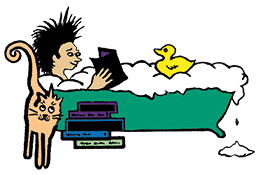|
|
Developing Identity, Strengths, And Self Perception For Young Adults With Autism Spectrum Disorder: The Basics College Curriculum
Stock informationGeneral Fields
Special Fields
DescriptionThe BASICS College Curriculum presents a hands-on approach to learning essential independence and life skills for students with Autism Spectrum Disorder (ASD). This book helps young adults to explore their identity and self-perception and encourages them to consider their personal characteristics and strengths. Ideal as a textbook for ASD college programs run by disability support services and suitable for students to use for self-study, it focuses on reframing the student's perception of ASD by looking at personal experiences, the language of diagnosis, and ASD in the media and it encourages students to identify their strengths in social, group or work settings. Each lesson provides valuable information and advice for the student, useful diagrams, practical exercises and workbook components that can be filled in at home or in class, and self-assessment tools. Promotion infoA practical curriculum to help young adults with autism understand their strengths ReviewsDr. Rigler and her team have outdone themselves. This second book in the series is the perfect follow-up, as it will assist students with building self-perception, self-awareness, and self-esteem. The graphics are superb, providing visual reminders of the issues and techniques presented. The use of identity language further encourages students to tap in, embrace, and encompass their personal strengths! -- Lisa M. Meeks, PhD, Director of Student Disability Services, University of California, San Francisco This book is a must-have for all young adults with Autism Spectrum Disorder. It outlines specific strategies and exercises to tackle one of the most difficult to address, as well as most overlooked, developmental differences that people with ASDs face; that is, developing a sense of self, identifying personal strengths, and learning how to build on them. Self-reflection and the ability to observe and learn about the self is one of the most pervasive challenges those with ASD face. Thanks to the addition of the BASICS College Curriculum series, and especially this book, the need for a structured approach to help each person with ASD reach his or her personal aptitudes has been met and is easily accessible to all. -- Karen L. Weigle, PhD, Licensed Clinical Psychologist, Chattanooga Autism Center and Associate Director, Center for START Services, University of New Hampshire Author descriptionMichelle Rigler, EdD, is Director of the Disability Resource Center at The University of Tennessee at Chattanooga and Director of the MoSAIC Program for students with Autism Spectrum Disorder on which the BASICS Curriculum is based. Having completed a Master's Degree in Special Education and worked for a number of years as a special education teacher, she embarked on a career in Higher Education in 2004 and received a Doctorate in Education in Learning and Leadership. Amy Rutherford is Program Coordinator as well as a coach and instructor on the Disability Resource Center's MoSAIC Program for students with Autism Spectrum Disorder at the University of Tennessee at Chattanooga. She has a Master's Degree in Mental Health Counseling with a focus on Autism Spectrum Disorders. Emily Quinn is Access Coordinator for the Disability Resource Center and serves in the role of coach and instructor for the MoSAIC Program for Students with Autism Spectrum Disorder at the University of Tennessee at Chattanooga. She is currently pursuing a Master's Degree in Special Education. Table of contentsIntroduction. 1. Personal Stories. Lesson 1: Early Childhood. Lesson 2: Teen Years. Lesson 3: Young Adulthood. Lesson 4: Writing Your Own Story. 2. The Language of ASD. Lesson 1: Identity Models. Lesson 2: Diagnostic Language. Lesson 3: Identity Language. Lesson 4: Diagnostic Criteria and the Impact on Community. Lesson 5: Owning ASD. 3. ASD in the Media. Lesson 1: Development of Perceptions through Popular Media. Lesson 2: ASD in the News. Lesson 3: ASD in Movies and Television. Lesson 4: ASD through Social Media. 4. Identifying Your Strengths. Lesson 1: Success and ASD Qualities. Lesson 2: Identifying the Established Strengths in ASD. Lesson 3: Recognizing Your Individual Strengths. Lesson 4: Replacing Negative Self-Perceptions. Lesson 5: Reframing Your View. 5. Developing Your Core Identity. Lesson 1: Identifying What Makes You Calm, Passionate, and Anxious. Lesson 2: Developing Your Core Identity Features. Lesson 3: It is Rarely Black and White. Lesson 4: The Intersection of Your Core Identity Features. 6. Social Rules and Social Confusion. Lesson 1: Social Confusion and Establishing Purpose. Lesson 2: Rules of Social Engagement. Lesson 3: Building Your Social First Aid Kit. Lesson 4: Digging Your Way Out. 7. Building Your Team. Lesson 1: Understanding Your Preferences. Lesson 2: Recognizing the Preferences of Others. Lesson 3: Partnering Preferences to Build Teams. Lesson 4: Roles in Work Teams/Groups. 8. Changing the Goal. Lesson 1: Looking Forward. Lesson 2: Choosing the Right Academic Major. Lesson 3: The Career Continuum. Lesson 4:An Introduction to Community Service, Job Shadowing, and Internships. Lesson 5: Mentors and Career Preparation. Next Steps. Appendix A - BASICS Chart Student Example. Appendix B - Guided Discussion. References. |

